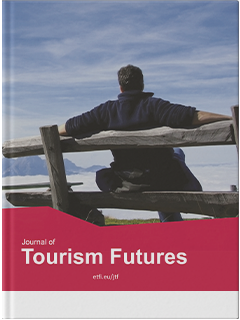All that glitters is not gold: a study of tourists' visit intention by watching deepfake destination videos
IF 6.6
Q1 HOSPITALITY, LEISURE, SPORT & TOURISM
引用次数: 0
Abstract
Purpose This study aims to examine the tourists' visit intention by watching deepfake destination videos, using Information Manipulation and Media Richness Theory. Design/methodology/approach This study conducted a primary survey utilizing a structured questionnaire. In total, 1,360 tourists were surveyed, and quantitative data analysis was done using PLS-SEM. Findings The results indicate that the factors that affect the tourists' visit intention after watching deepfake videos include information manipulation tactics, trust and media richness. This study also found that perceived deception and cognitive load do not influence the tourists' visit intention. Originality/value The originality/salience of this study lies in the fact that this is possibly among the first to combine the Media Richness Theory and Information Manipulation for understanding tourists' visit intention and post-viewing deepfake destination videos.闪光的并不都是金子:一项通过观看深度造假的目的地视频来研究游客的旅游意图的研究
目的运用信息操纵理论和媒介丰富度理论,通过观看深度假旅游视频来考察游客的旅游意向。设计/方法/方法本研究采用结构化问卷进行了初步调查。对1360名游客进行了调查,并利用PLS-SEM进行了定量数据分析。研究结果表明,影响深度虚假视频后游客访问意愿的因素包括信息操纵策略、信任和媒体丰富度。本研究还发现,知觉欺骗和认知负荷对游客的旅游意愿没有影响。本研究的独创性/突出之处在于,它可能是第一个将媒体丰富度理论与信息操纵相结合,以了解游客的访问意图和观看后的深度假目的地视频的研究。
本文章由计算机程序翻译,如有差异,请以英文原文为准。
求助全文
约1分钟内获得全文
求助全文
来源期刊

Journal of Tourism Futures
HOSPITALITY, LEISURE, SPORT & TOURISM-
CiteScore
15.70
自引率
6.00%
发文量
64
审稿时长
34 weeks
期刊介绍:
 求助内容:
求助内容: 应助结果提醒方式:
应助结果提醒方式:


